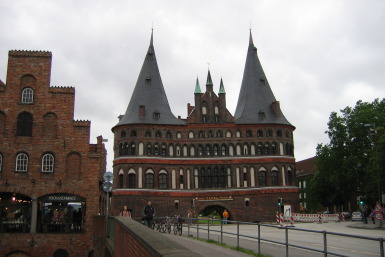Abstract Nouns

In this lesson of the Learn German course, you'll learn how abstract nouns are created in German by adding suffixes to verbs, adjectives, and other nouns.
Flashcards and a quiz are included in the lesson to help you learn some common abstract nouns.
Suffixes Used to Create Nouns
Abstract nouns are nouns that name concepts, ideas, and qualities. In German abstract nouns are often created by adding suffixes to a verb, adjective, or other noun.
The suffix ung
The suffix ung is often added to a verb to create a noun. These nouns are equivalent to English nouns ending in ing, tion, and ment. German nouns ending in ung are always feminine.
| die Aufregung | the excitement |
| die Begegnung | the encounter |
| die Behandlung | the treatment |
| die Entdeckung | the discovery |
| die Erfahrung | the experience |
| die Erklärung | the explanation |
| die Kleidung | the clothing |
| die Öffnung | the opening |
| die Ordnung | the order |
| die Regierung | the government |
The suffix nis
The German suffix nis is equivalent to the English suffix ness, and is used to describe a condition, activity, or function. Nouns that end in nis are usually neuter and their plural form is nisse.
| das Ärgernis | the annoyance |
| das Bedürfnis | the need |
| die Besorgnis | the anxiety, the concern |
| das Ereignis | the event |
| das Erzeugnis | the product |
| die Finsternis | the darkness |
| das Gedächtnis | the memory |
| das Geheimnis | the secret |
| das Verständnis | the understanding |
The suffix e
The suffix e is added to the stem of some verbs to create a noun. These nouns are feminine and add an n for the plural form.
The suffix e is also added to some adjectives to create nouns. These nouns are also feminine and add an n for the plural form.
| die Liebe | the love |
| die Wäsche | the laundry |
| die Lüge | the lie |
| die Sprache | the language |
| die Fläche | the surface, the area |
| die Glätte | the smoothness |
| die Größe | the size |
| die Güte | the goodness |
| die Länge | the length |
| die Stärke | the strength |
| die Wärme | the warmth |
| die Tiefe | the depth |
The suffixes heit and keit
The suffixes heit and keit are added to many adjectives to create abstract nouns. These nouns are feminine.
| die Ehrlichkeit | the honesty |
| die Freundlichkeit | the friendliness |
| die Fröhlichkeit | the cheerfulness |
| die Langsamkeit | the slowness |
| die Freiheit | the freedom |
| die Sicherheit | the safety, the security |
The suffixes er and erin
The suffixes er and erin are added to a verb to describe the person doing the action. For males er is used and for females erin is used. The plural form of erin is erinnen and the plural form of er is also er.
The suffix er can also be used to name the result of an action or the object that does the action.
| der Arbeiter, die Arbeiterin | the worker |
| der Besitzer, die Besitzerin | the owner |
| der Fehler | the mistake, the error |
| der Fernseher | the television |
| der Lichtschalter | the light switch |
There are several other suffixes in German that can be used to create an abstract noun from a verb or adjective, such as tät, ler, ling, schaft, and tum.
Noun Flashcards
Here are some flashcards to help you learn the German abstract nouns introduced in this lesson.
Quiz
Here is an online quiz to help you learn the abstract nouns included in this lesson.